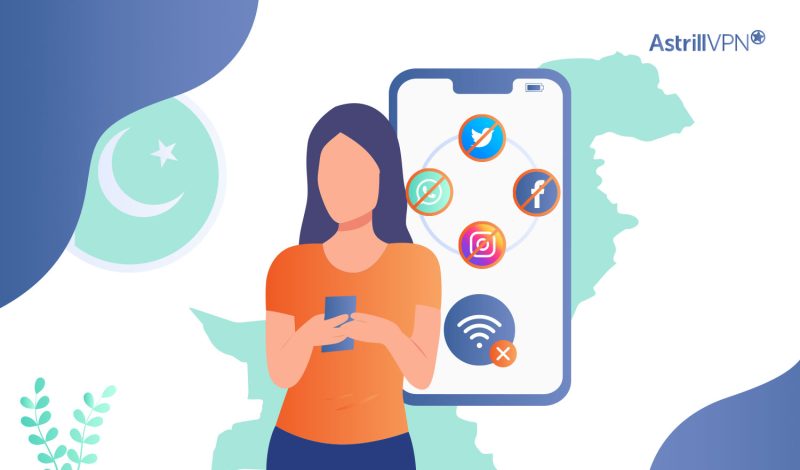Pakistan’s Social Media Blackout – What you must need to Know

Arsalan Rathore

The social media blackout in Pakistan has reverberated across the nation, leaving citizens and international observers bewildered and concerned. Following the arrest of prominent political figure Imran Khan, the government has enforced sweeping restrictions on access to popular social media platforms, including Twitter, YouTube, Facebook, and Instagram.
This unprecedented move has sparked controversy and political unrest and raised critical questions about freedom of expression and information sharing in the country.
Table of Contents
Imran Khan’s Arrest and Political Unrest
The arrest of Imran Khan, the former Prime Minister of Pakistan and leader of the political party Tehreek-e-Insaf, on May 9th has sent shockwaves throughout the nation. His arrest has triggered widespread protests and reactions from both his supporters and critics, underscoring the significance of this development in Pakistani politics.
Khan’s influential role in shaping public discourse and his vocal stance on various issues make his arrest a turning point in the country’s political landscape.
The Social Media Blackout and its Implications
Implemented nationwide, the social media blackout has affected millions of internet users in Pakistan. Accessing social media platforms has become daunting, with users encountering error messages or blocked content, effectively severing their online presence.
This blanket ban on social media platforms intensifies the government’s control over digital communication channels, sparking debates about the delicate balance between security measures and citizens’ fundamental rights in a democratic society.
Concerns Over Freedom of Expression and Information Sharing
The social media blackout has raised significant concerns among human rights organizations and advocacy groups. They emphasize that the restrictions infringe upon the fundamental right to freedom of expression, limiting citizens’ ability to share their views and engage in open dialogue.
Preserving democratic values and ensuring individuals can freely express their opinions without censorship or undue restrictions are paramount in upholding the principles of a democratic society.
VPN Usage During the Social Media Blackout
Amidst the social media blackout in Pakistan, some internet users have turned to VPNs as a means to bypass the restrictions and regain access to the blocked social media platforms.
A VPN encrypts the user’s traffic and creates a secure connection between the device and the internet. This way, the IP of the user is masked, and their location is hidden. This allows users to browse the web anonymously and access websites and services that may be blocked or restricted in their country.
One of the best options for people in Pakistan to bypass this social media blackout is AstrillVPN. AstrillVPN offers a range of features that can help users bypass censorship and access social media platforms. By connecting to AstrillVPN’s servers located in different countries, users can appear as if they are browsing the internet from a different location, thus circumventing the restrictions imposed by the Pakistani government.
Internet users in Pakistan who wish to unblock social media platforms using AstrillVPN, can follow these simple steps:
- Go to astrill.com and sign-up for the service.
- Download and Install the AstrillVPN app for your device.
- Open the app and sign in using your credentials.
- Choose a server located outside of Pakistan from the list of servers.
- Click the “On/Off” toggle switch to establish the connection.
- Once connected, users can access social media platforms as if they were browsing from the chosen server’s location.
Seeking Legal Remedies
In the face of the social media blackout, citizens and civil society organizations have begun exploring legal avenues to challenge these restrictions. Filing petitions in courts, advocating for the protection of freedom of expression, and seeking judicial intervention to lift the blackout have become crucial steps in reinforcing the importance of upholding citizens’ rights. These legal challenges present an opportunity to scrutinize the blackout’s constitutional validity and assert individuals’ fundamental rights.

No comments were posted yet